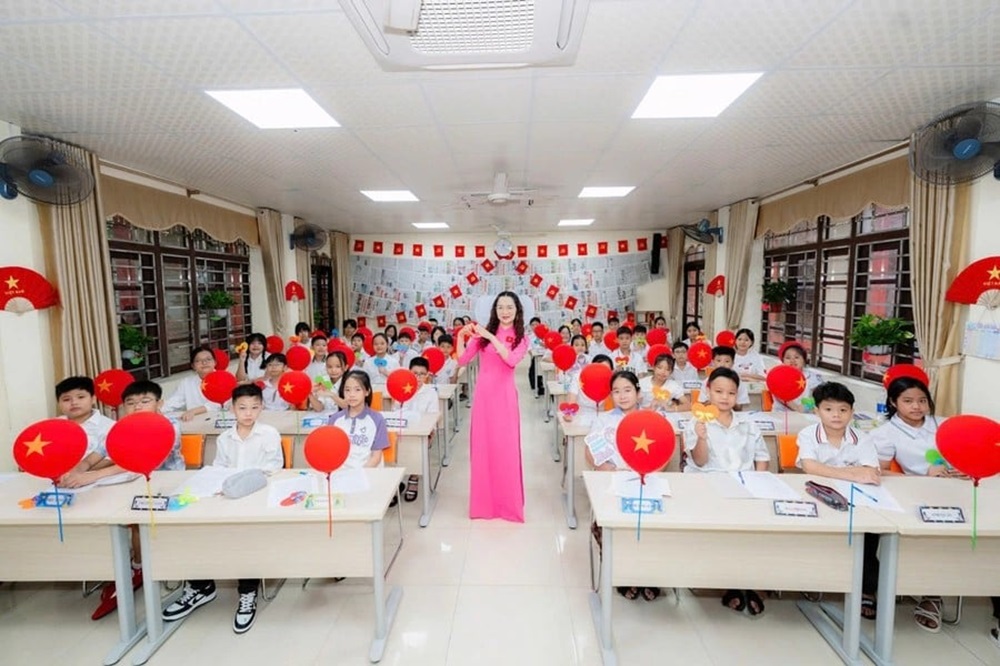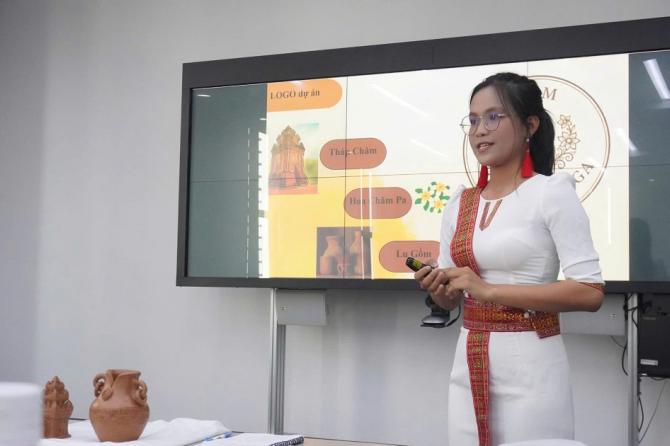The Politburo Issues Resolution 71-NQ/TW: Breakthroughs in Education and Training Development in the Digital Era
On August 26, 2025, the Politburo signed and promulgated Resolution No. 71-NQ/TW on breakthrough orientations for the development of education and training toward 2035, with a vision to 2045. This is a strategic document that clearly affirms education and training as a top national policy and the central driver in the country’s development process. The Resolution emphasizes that, in the new stage, Vietnam must rely on science and technology, innovation, and digital transformation as consistent driving forces, while considering human resource and talent development through education and training as decisive factors to ensure rapid and sustainable national development.

In its specific content, the Resolution also outlines two important orientations with profound implications for the future of education and training: first, to promote comprehensive digital transformation, ensuring the universalization and strong application of digital technology and artificial intelligence in education and training; second, to modernize and elevate higher education, creating breakthroughs in the development of high-quality human resources and talent, while leading research and innovation.
Comprehensive Digital Transformation in Education and Training: Universal Digital Skills, Application of AI
Resolution 71 requires the development of a national education data strategy, the building of technology infrastructure and smart education platforms, and the promotion of AI application in teaching, management, and research. These efforts aim to modernize teaching–learning methods, personalize learning processes, enhance learners’ digital competencies, and align training with labor market demands in the digital era. Specifically, Resolution 71 states:
- Build a data strategy for digital transformation and develop a national education platform applying controlled AI; allocate sufficient resources to invest in facilities and technology infrastructure to accelerate digital transformation, universalize and apply digital technology and AI in managing and organizing education and training at all levels nationwide;
- Develop smart education platforms, smart textbooks, and curricula; strongly promote the application of science, technology, and AI in innovating teaching and learning methods, testing, and assessment; foster digital education, AI education, smart education governance, digital schools, and smart classrooms;
- Develop a national education and human resources information system, interconnected with the labor market and employment information system, and integrated with scientific, technological, and innovation data from educational institutions;
- Raise digital and AI competency standards for learners and educators at all levels, integrate these into curricula, and encourage creativity and experiential learning. Policies should incentivize enterprises and universities to participate in teacher and learner training on digital and AI capabilities.
Modernizing and Elevating Higher Education: Breakthroughs in High-Quality Human Resources and Talent, Leading Research and Innovation
In addition to digital transformation, Resolution 71 sets out tasks for comprehensive modernization of higher education, focusing on strategic development, restructuring a lean system, establishing centers of training and research excellence, investing in infrastructure, expanding international programs, linking education with research and entrepreneurship, reforming talent recognition and reward mechanisms, and building an innovation ecosystem within universities. Specifically, Resolution 71 states:
- Urgently develop a strategic framework for higher education. Restructure universities; merge or dissolve those that fail to meet standards; eliminate intermediate levels, ensuring streamlined, unified, and effective governance. Consider merging research institutes with universities; strengthen state management of higher education institutions; study transferring certain universities to local management to improve governance and better meet local human resource needs.
- Invest in modern technical infrastructure and expand development spaces for universities to operate effectively. Upgrade facilities and laboratories, establish centers of excellence in training and research at key universities and teacher training institutions. Invest heavily with special mechanisms to develop 3 to 5 elite research universities of international standards to train national talents. Prioritize funding for scientific research, particularly basic research tied to postgraduate training.
- Encourage the planning and development of high-tech university cities; strongly foster innovative universities and next-generation technology universities as core drivers in regional innovation ecosystems; promote effective State–University–Business collaboration. Provide support mechanisms for faculty and students to implement startup and innovation projects, establish spin-offs and startups.
- Expand programs to train and develop faculty, increase support for advanced training at home and abroad. Develop policies to attract outstanding international faculty with special incentives.
- Boldly reform curricula to meet international standards; integrate data analytics, AI, entrepreneurship, and innovation into training. Support expansion of talent training programs and postgraduate education tied to scientific research and innovation in basic sciences, engineering, and strategic technologies, especially those of Industry 4.0 and national key projects. Link education with research, science, technology development, innovation, and national digital transformation.
- Reform higher education admissions toward accurate assessment of student competence, ensuring unified control of entry standards and strict quality assurance for graduate outcomes. Strengthen quality management, especially for doctoral, pedagogy, health, law, and other key disciplines. Allow specialized institutions to exclusively offer specific disciplines. Tighten regulations on doctoral training for officials and public servants.
Expectations for a Breakthrough Future in Education and Training
With these breakthrough orientations, Resolution 71 is expected to usher in a new stage of development for Vietnam’s education and training. Digital transformation and AI will not only serve as tools but also as foundational elements to innovate teaching–learning methods, management, and research. Meanwhile, modernizing and elevating higher education will help build a pool of high-level human resources with global competitiveness and creativity. Resolution 71 is therefore not only a guiding compass for the education and training sector but also a key for the nation to enter a phase of rapid and sustainable development, with knowledge, technology, and human capital as its core pillars.
See details of Politburo Resolution No. 71-NQ/TW on breakthroughs in education and training development here.




